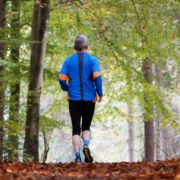Should You Heat or Ice an Injury?
Earlier this week, we put on a free Zoom workshop all about preventing and overcoming knee pain – and one of the questions that came up was if you should apply heat or ice when something is hurting. This is a VERY common question in our office, so we wanted to share the same advice we give to clients right here!
When to apply ice:
Generally speaking, the best time to apply ice is within 24 to 48 hours immediately following an injury. Application of ice during this stage has been shown to reduce the formation of edema and “secondary injury.” After that, it really becomes a personal choice. If you’re in pain, and ice makes you feel better, go for it! Some research has claimed that icing an injury after 48 hours is “bad” for you. But if you really dig into the research, it’s inconclusive on this topic. What I tell my clients is that if something feels irritated or inflamed – go for ice. It’s a much better and more natural alternative to pain pills!
When to apply heat:
Once you’re into the chronic stages of injury or pain, I’m generally a fan of heat. But the term “heat” is relative – and doesn’t necessarily refer to the application of a heating pad only. In fact, research has shown that heating pads are not able to penetrate deeply enough to actually have an effect on the injured muscle or soft tissue. But it does feel good… which can be beneficial in and of itself because when you “feel” better – your nervous system relaxes. If the superficial heat can relax the nervous system enough so that you can actually tolerate the movements or exercises that WILL actually heal you – then I can see a benefit.
The BEST way to provide “heat” as a way to promote healing to an injury is through movement – but you need the right prescription. The mistakes I often see, especially around 2-4 weeks post injury, is that people aren’t moving enough (if at all), or they are overloading the tissue and moving too much.
Movement truly is medicine, and it’s one of the best and most natural ways to properly heal from an injury – but you MUST get the prescription right.
So there you have it. You can’t really go wrong with either modality. The general rule is that if it’s an acute injury – ice up to 48 hours. For anything else, we typically recommend heat.
If you’re presently healing from an injury and not satisfied with your progress – perhaps you’re just missing the correct prescription. If you’re wondering what that magical movement is, or you’re wondering if the current movement you’re doing is safe, get in touch!
Speaking of movement as a way to heal…
Our Pilates 101: Get Your Back to Health is back!
This is our signature program and it’s designed to help those dealing with lingering back problems learn to move and heal the RIGHT way – from the inside out with proper core strengthening. It’s also ideal for those that had recent back surgery and you’ve already been through your initial stages of general physical therapy.
Interested in learning more or getting on the VIP waitlist for the program? Click here!



